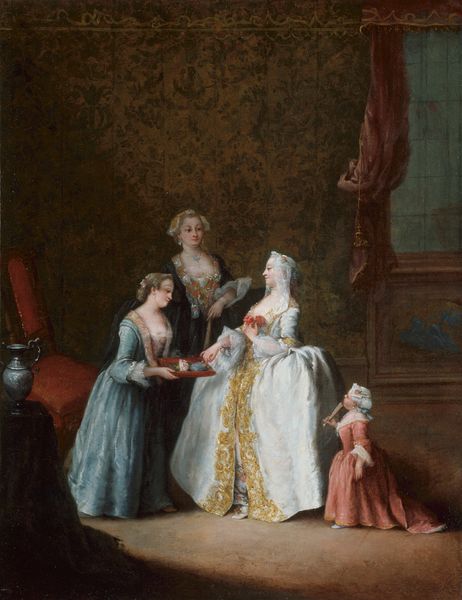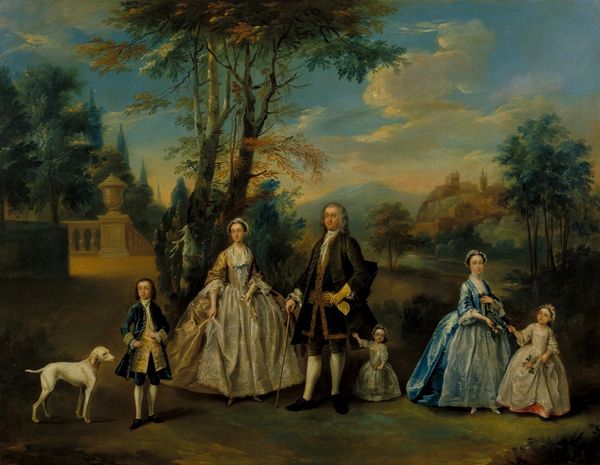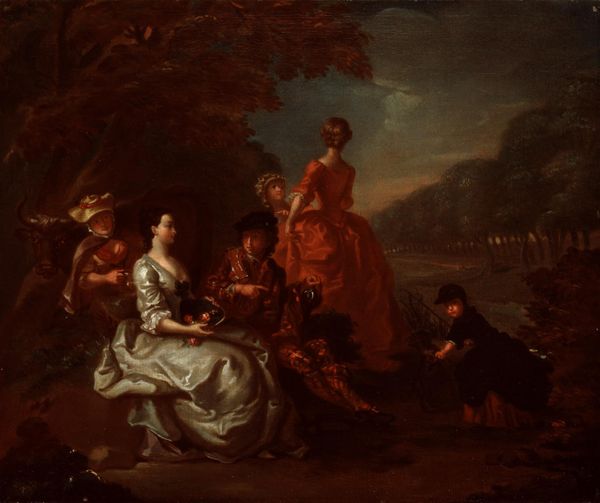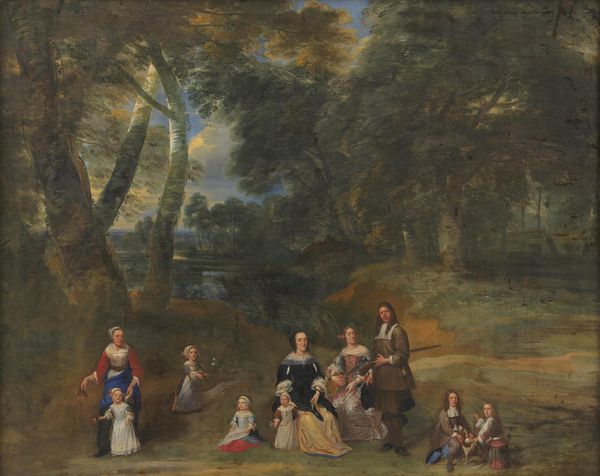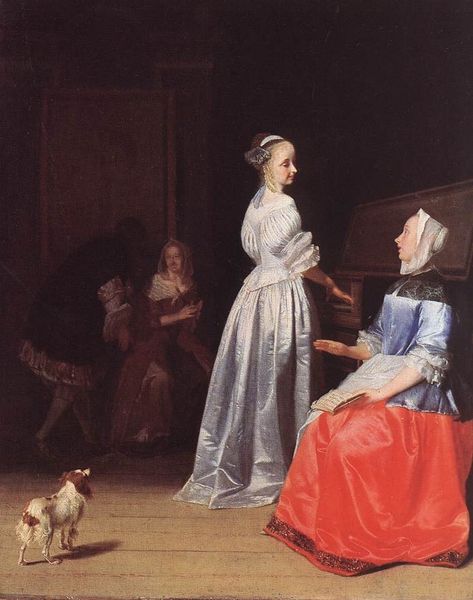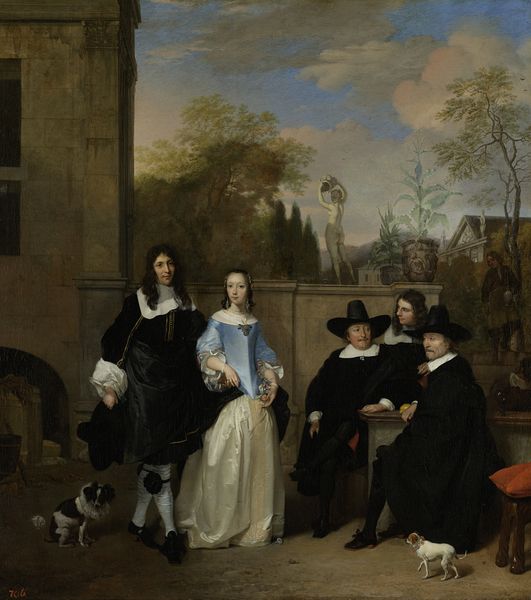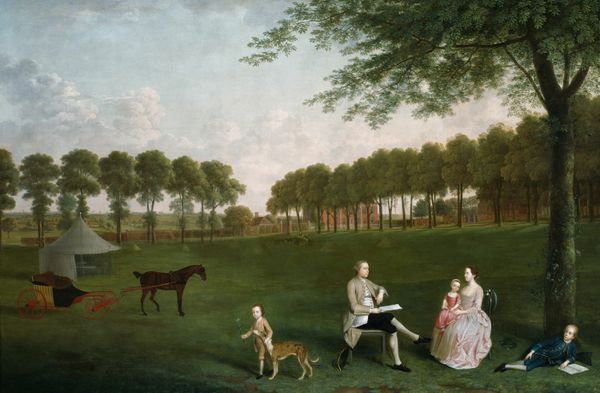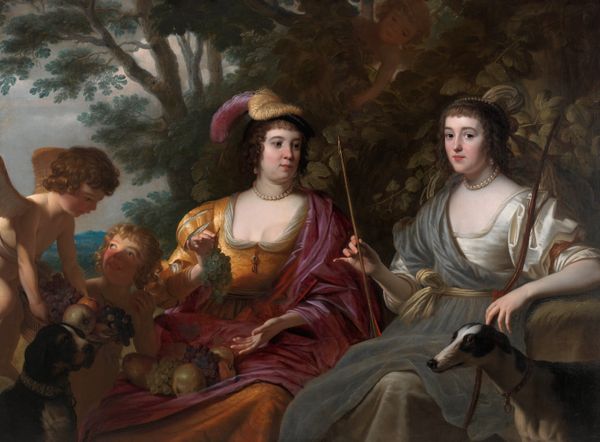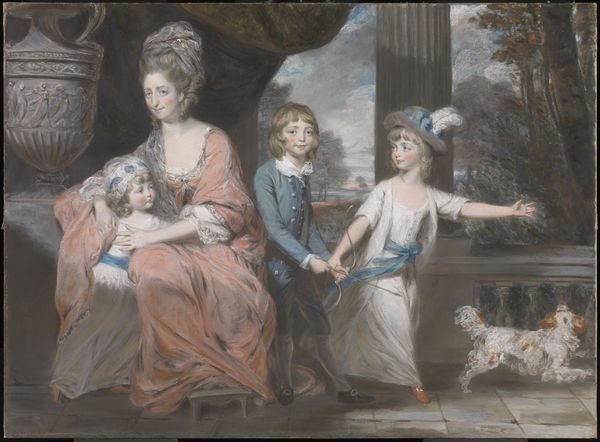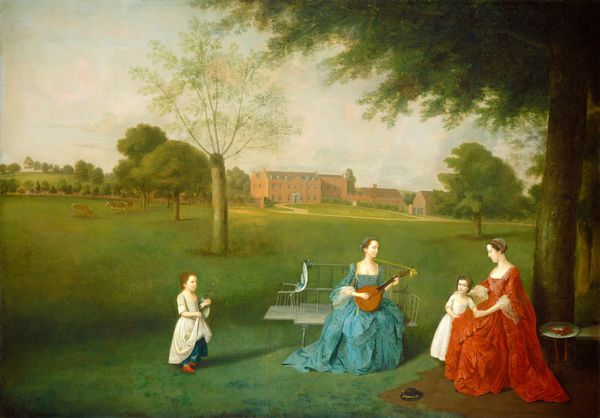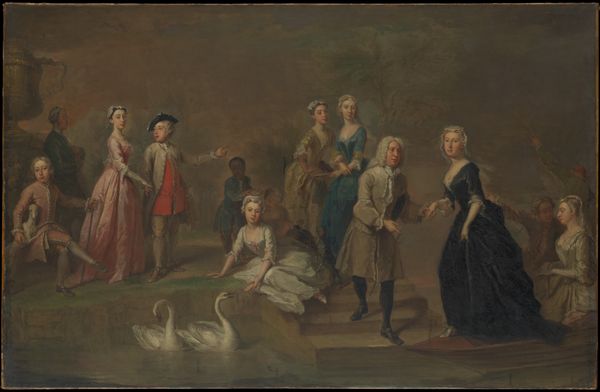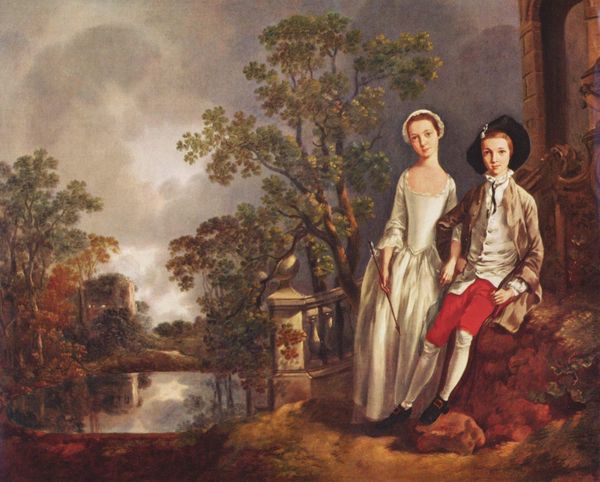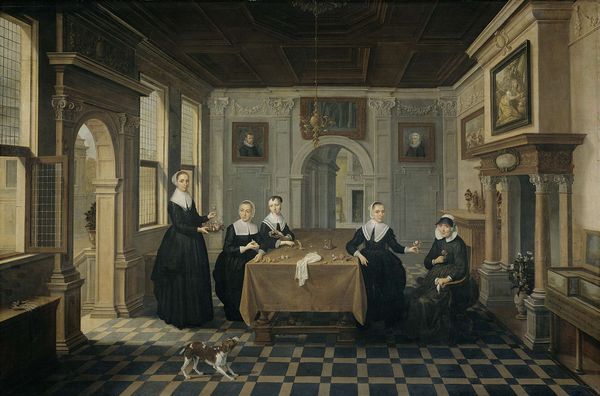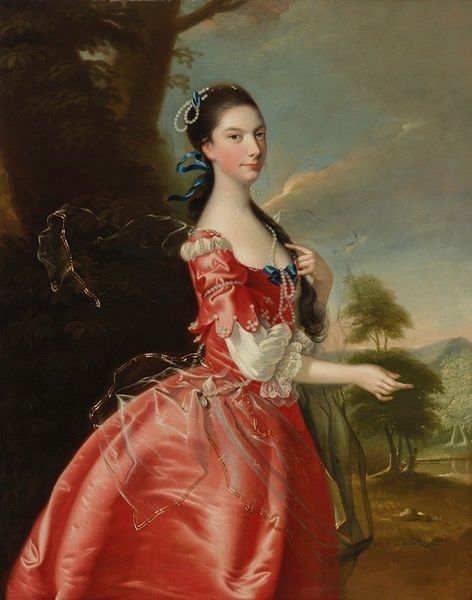
Dimensions: support: 830 x 1310 mm frame: 1034 x 1508 x 83 mm
Copyright: CC-BY-NC-ND 4.0 DEED, Photo: Tate
Editor: Here we have "Three Ladies of the Leman Family and their Dogs on a Terrace" by Benjamin Ferrers. The dresses immediately catch my eye. What can we say about the materials and their significance? Curator: Considering the means of production, the silk, the lace... these fabrics signal wealth and leisure, achieved through the labor of others. Note also the table; its carved details denote craftsmanship, contrasting with the "natural" setting. Editor: So, it's not just a pretty picture but a statement about class and consumption? Curator: Precisely. Ferrers meticulously depicts the textures and forms, drawing our attention to the materiality of status in 18th-century England. It challenges the idea of art as separate from the world of labor and goods. Editor: It's fascinating how much the materials themselves tell the story. Curator: Indeed. They are not simply decorative; they are active participants in constructing meaning.
Comments
tate 10 months ago
⋮
http://www.tate.org.uk/art/artworks/ferrers-three-ladies-of-the-leman-family-and-their-dogs-on-a-terrace-t06660
Join the conversation
Join millions of artists and users on Artera today and experience the ultimate creative platform.
tate 10 months ago
⋮
This portrait shows three ladies, possibly of the Leman family of Norfolk. The eldest is dressed in mourning and works a mechanical spinning staff; the lady next to her wears a black and white striped dress associated with half-mourning and holds a knotting shuttle. Their companion opposite interrupts her reading to take a pinch of snuff. The stiff, formal poses of the sitters and imaginary setting were typical of most group portraits of the early eighteenth century. The emphasis was primarily on status and family dynasty rather than likeness or character. Gallery label, September 2004
